Affiliate Marketing for Music Managers
You can download a PDF version of the guide here.
Affiliate marketing – or, in plainer English, “referral” or “influencer” marketing – is where online retailers utilise third-party referrals to drive and encourage sales.
In essence, it is the lifeblood of online commerce.
And it is big business too. According to a report by the Internet Advertising Bureau UK [IAB] and PricewaterhouseCoopers, in 2015 UK advertisers spent £1.3 billion on affiliate marketing and lead generation – driving an estimated £17.7bn in sales, or around 1% of UK GDP.
With music being such a compelling proposition online and capable of drawing large audiences (eg 95%+ of the top 500 most-viewed YouTube videos ever are music promos), there are clear opportunity here for artists – not only to generate incremental revenues, but also to collect valuable data and insights.
To help better understand the dynamics at play here, and how affiliate marketing can be successfully employed by artists and other creators, the MMF hosted a short presentation last week from two of the UK’s leading digital practitioners, iemusic’s Stephen O’Reilly and Tom Burris.
Here’s the main lessons we took away:
What is affiliate marketing or an affiliate programme?
Very simply, affiliate marketing is where an online “merchant” rewards a third-party for promoting the goods that they sell and driving traffic towards their store. Typically, this happens via an established “affiliate programme” that allows subscribers to earn a commission by referring their audience or social media followers to click through and make a purchase.
Effectively, each transaction on the merchant site will trigger a commission payment. The larger your audience, the bigger the opportunity to earn.
In any affiliate marketing circle, there are typically four parties:
- The Merchant: e.g. an online store such as Amazon or Tesco
- The Network: e.g. the bespoke intermediary platform (such as Awin or Skimlinks) that creates a link (literally) between the Merchant and the Publisher
- The Publisher: e.g. an artist who posts a referral link directed to the Merchant’s site
- The Consumer: e.g. the fan who clicks on the referral link and makes a purchase from the Merchant
The application of affiliate marketing from the perspective of the publisher (your artist) can range from overt promotion (eg a celebrity inserting an affiliate link to a fashion brand in an Instagram post) to more subtle placements – e.g. through banner ads, by an artist inserting affiliate links to tour listings on their website, or by acting as a curator to promote other acts.
However, all are intended to drive traffic towards a Merchant, with the aim of earning a referral fee after a purchase.
Which music retailers operate affiliate programmes?
Many of most well-known digital music stores, streaming services, ticketing companies (both primary and secondary) and merchandise companies have affiliate schemes.
Some examples:
Apple / iTunes: programme participants earn a 7% commission on music, video or app sales – or $5 if the user pays $20 for an Apple Music subscription. See here.
Deezer: payments generated when clients or users sign up for Deezer’s paid service. See here
7digital: payments generated from any track or album purchase on 7digital. See here
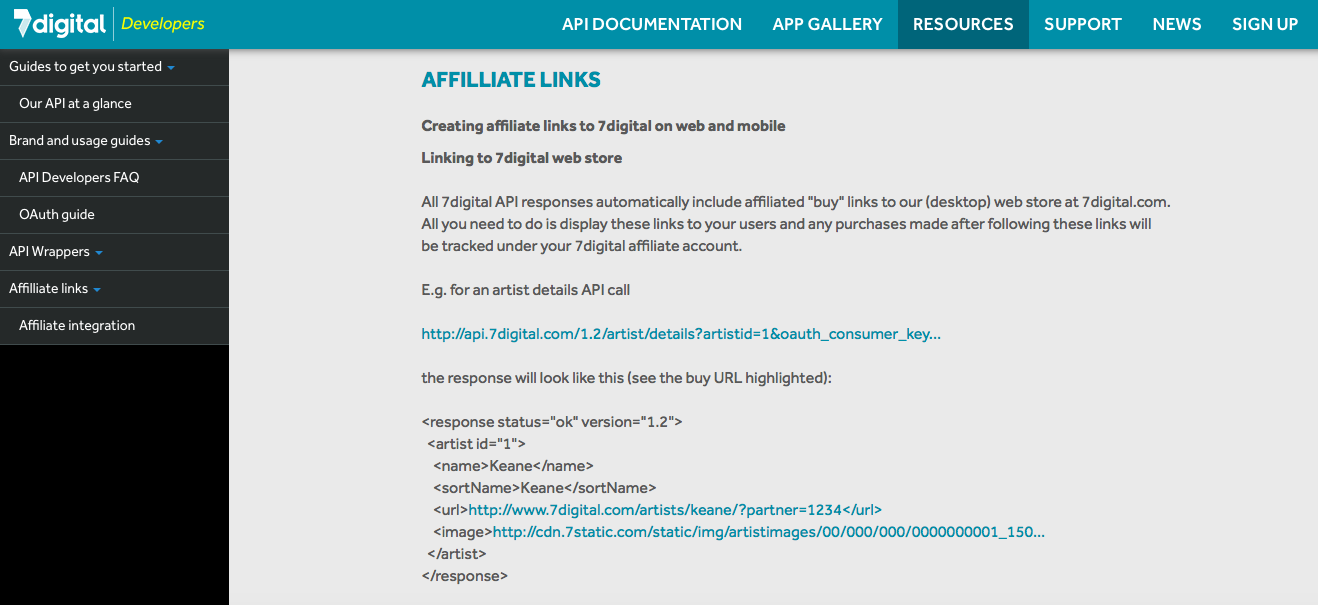
Amazon: operate an Associates Programme – with a £4.50 fixed fee for every eligible free trial generated to Amazon Music Unlimited or £3.00 fixed fee for every eligible free trial generated to Amazon Prime. See here.
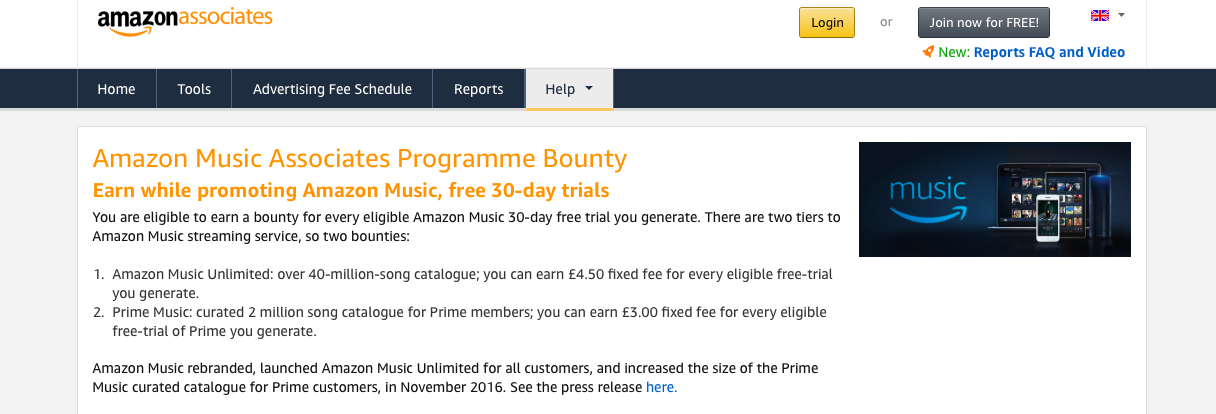
HMV: payments generated for any sale in HMV’s online store. See here
Ticketmaster: use the Awin affiliate network, and pay commission on every ticket sold. See here
See Tickets: payments generated on every ticket sale. See here.
The Ticket Factory: pays a 1.5% default commission on ticket sales, plus exclusive content and competitions. See here.
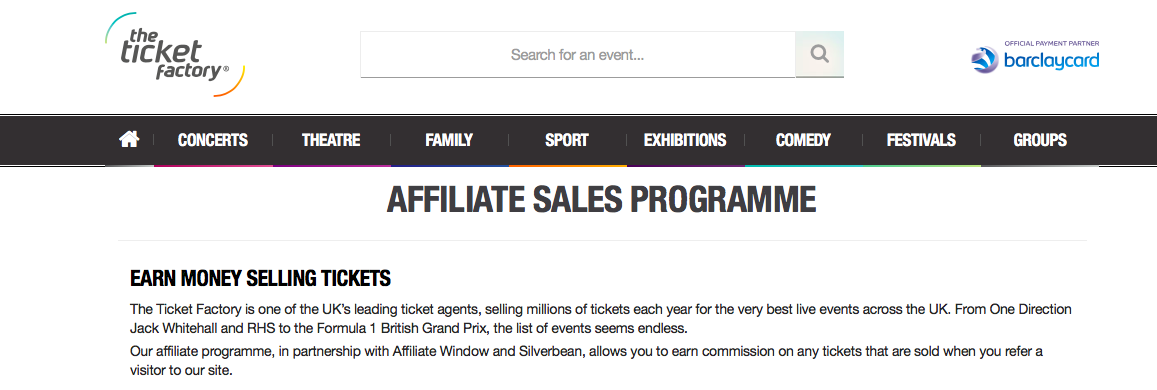
Gigantic: commission rate dependent upon volume of sales, and taken from Gigantic’s booking fee. See here.
Skiddle: affiliate programme includes a what’s on guide. See here.
WeGotTickets: enables bespoke listings for regional and national events. See here.
Anybody else?
The majority of major online and High Street retailers also run affiliate programmes – from Tesco to John Lewis and EE to Vodafone.
Aggregator sites like Skimlinks provide a portal that connects thousands of publishers with thousands of merchants.
Affiliate programmes are commonly employed by media organisations – for instance, by newspapers, music magazines or blogs – vloggers and anyone else who can generate significant volumes of traffic online.
For all these businesses, affiliate marketing is embedded in the content they produce – providing an incremental and sometimes significant income stream.
And if they can make money, then why not the artist as well?
How do you get involved?
Participation in any affiliate programme typically involves a simple sign-up process to the Merchant’s affiliate marketing platform or network (such as Awin or Tradedoubler).
These platforms will offer a link generator tool, enabling you to produce affiliate links that connect a post on your websites or social networks to the merchant site. All such links contain a unique code in the URL, tracking back to your account and capturing information about the customer’s online activities.
To streamline and control this process, Stephen and Tom advise wrapping/shortening any links via a platform like Linkfire (that automatically applies your affiliate codes), a smartURL or abbreviated bit.ly URL.
Can you capture affiliate payments from your own content? 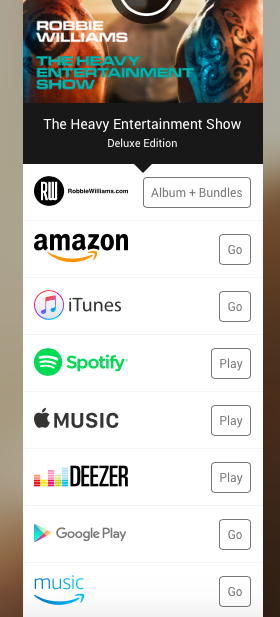
Yes.
Artists can apply affiliate links to their own music or tickets, thereby earning a commission on top of any contracted royalties or payments.
However, a successful affiliate strategy requires upfront planning – to ensure an artist is in full control of their website and social media, and that affiliate links are generated uniformly and point back to their account.
For example, it would be easy for another affiliate “publisher” (eg a record label) to direct payments to their account instead.
On a curator level, there is also the potential for an artists to cross-promote other acts, events or products that they support – helping drive sales to those parties, while earning a commission in the process.
Additional revenue streams aside, what are the other benefits?
Affiliate marketing platforms capture useful consumer data, and can provide detailed insights into an audience’s online behaviour. For instance, the iTunes affiliate dashboard enables users to see other products a customer has purchased, and other detailed information about their tastes and likes.
They also provide reporting, for instance to track ROI for any digital promotions. For example, if you’re paying an agency or running ads yourself you can compare your ticket sales generated versus those generated by Facebook ads for example.
However, there are things to be aware of…
Partner Links: occasionally partners will supply links with their own affiliate codes applied, meaning they will benefit from any sales. If you are unsure of this, then navigate to the webpage manually to find the original link.
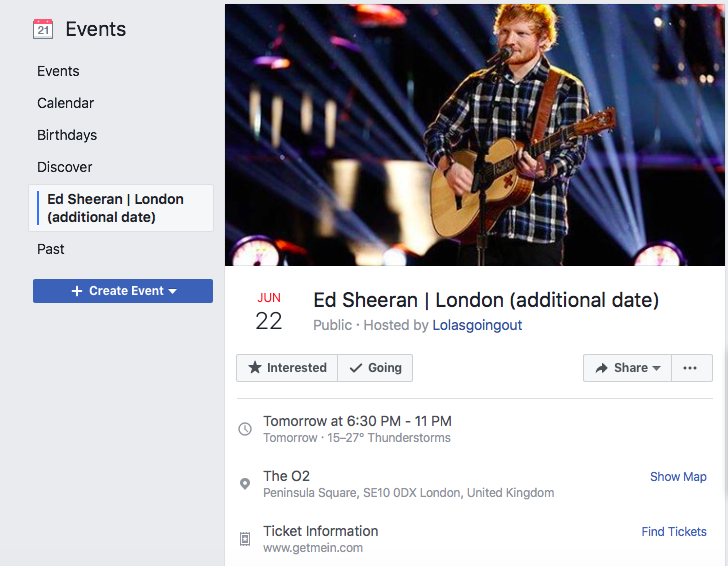
Unofficial Links: bad actors can also take advantage of affiliate programmes – for instance, by setting up Facebook Events with links to affiliate tokens on secondary ticketing sites.
Similarly, online media such as Gigwise and NME frequently point ticket listings towards affiliate links on secondary ticketing sites – while certain red-topped newspapers have inserted affiliate links to Viagogo and StubHub in articles about the perils of online ticket touting!
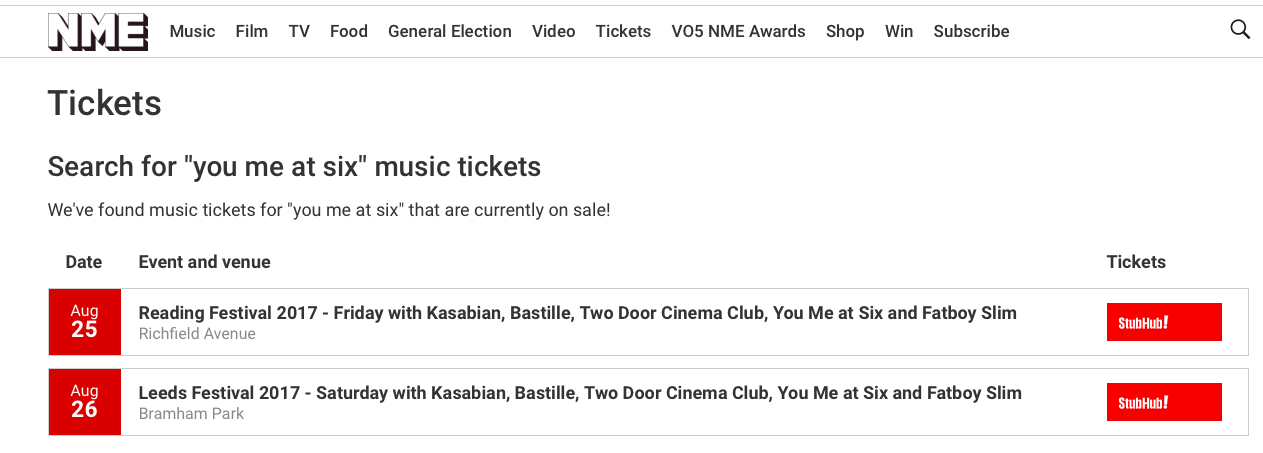

As above, to gain the most from affiliate marketing, it is important to take control – for instance, to set up an official Facebook event, to embed media materials with your own affiliate links and to generally take ownership.
Some useful links
Marketing Week – What is affiliate marketing?
The Drum – articles about affiliate marketing
B2B Marketing: Making B2B performance marketing work for you
Chartered Institute of Marketing (overview)